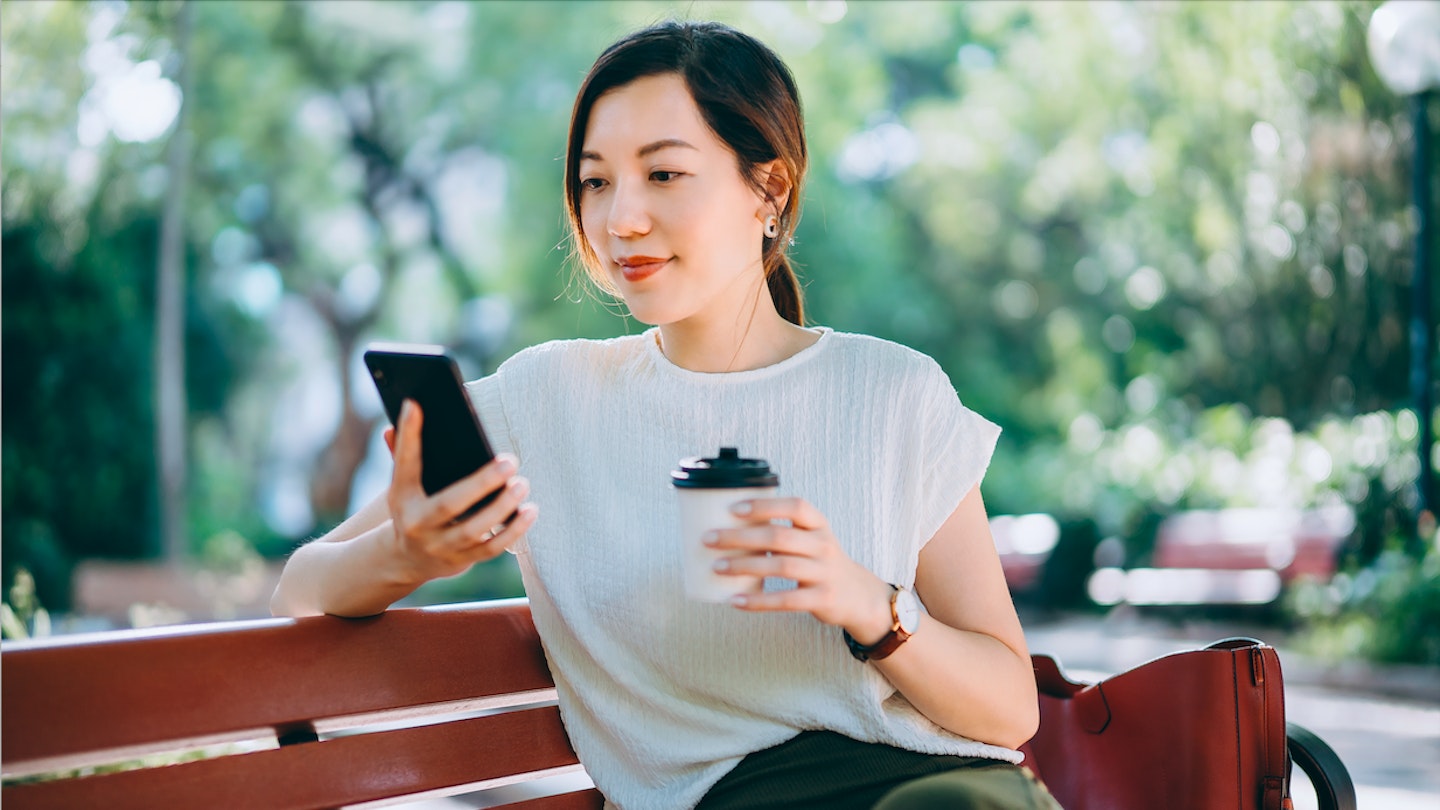If there’s one thing the last two years has taught us it’s that looking after our health is about more than just fitting into those skinnies. Whilst immunity has been the words on everyone’s lips thanks to, you know, the global pandemic, approaching our overall health from 360 degrees has never been more important.
Which is why it’s handy that there’s been an explosion of tech in form of gadgets and apps to help us make healthy choices.
One such app is My Possible Self, an NHS approved platform that takes an “holistic approach to mental health” by “managing anxiety, tackling depression, easing stress and improving sleep”.
Here’s what you need to know.
What is My Possible Self App?
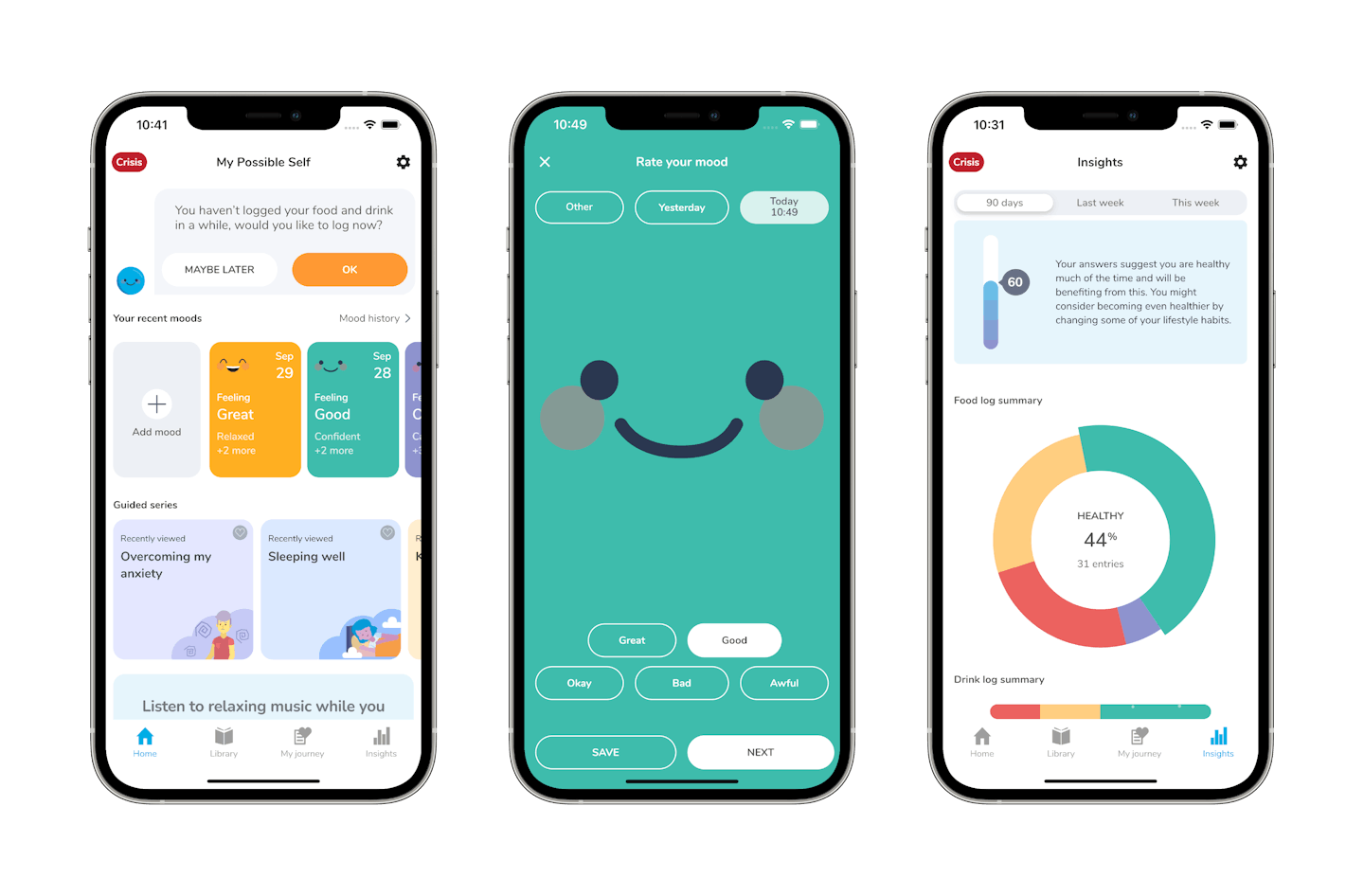
The app was created in partnership with leading mental health experts in the fields of CBT (Cognitive Behavioural Therapy) and is clinically certified and NHS approved. It uses established, effective CBT techniques customised for a digital audience in the form of interactive worksheets and games.
READ MORE
Being kind quotes: 21 thoughtful lines to bring warmth to your day
Mark Williams mindfulness: who is the author and what's the Guide To Finding Peace?
What is CBT?
Cognitive Behaviour Therapy is a popular form of talking therapy which aims to interrogate the connection between emotions, thoughts, feelings (cognition) and actions (behaviour) and is particularly effective for generalised anxiety disorders. CBT can be thought of as creating a toolkit for patients to easily access when they’re suffering from symptoms of anxiety, such as the 54321 method.
What is the 54321 method in CBT?
In Cognitive Behavioural Therapy, the 54321 method is a common grounding technique that can be used anywhere and at any time by someone experiencing anxiety symptoms. In order to bring their thoughts back to the present moment and away from panicking, the sufferer should name five things they can see, four things they can touch, three things they can hear, two things they can smell and one thing they can taste.
Is the My Possible Self App free?
You can download the My Possible Self app from free on the App Store or at Google Play. It's currently rated 4.75 stars and the website reads, "My Possible Self’s clinically certified content has been created in collaboration with Priory Healthcare, world leading independent mental health experts. It uses cognitive behavioural therapy (CBT) customised for digital use and is completely free.
"Hinged upon interactive tools and techniques, users are guided to manage their problems by breaking them down to become less overwhelming and more manageable, with problems categorised into five areas: situations, thoughts, emotions, physical feelings and actions."
CHECK OUT: nine easy ideas for self care
Be kind to yourself - nine easy ideas for self care
 1 of 11
1 of 11Find a sport you enjoy
Too long have we thought of exercise as purely a weight loss tool, or even a punishment for eating our favourite foods. Finding an exercise or sport you truly enjoy (it is possible, trust us!) is a great form of 'me time' where you can switch off and celebrate the ability of your body to move and make you feel good. Stuck for ideas? Here's why you should give boxing a go this year.
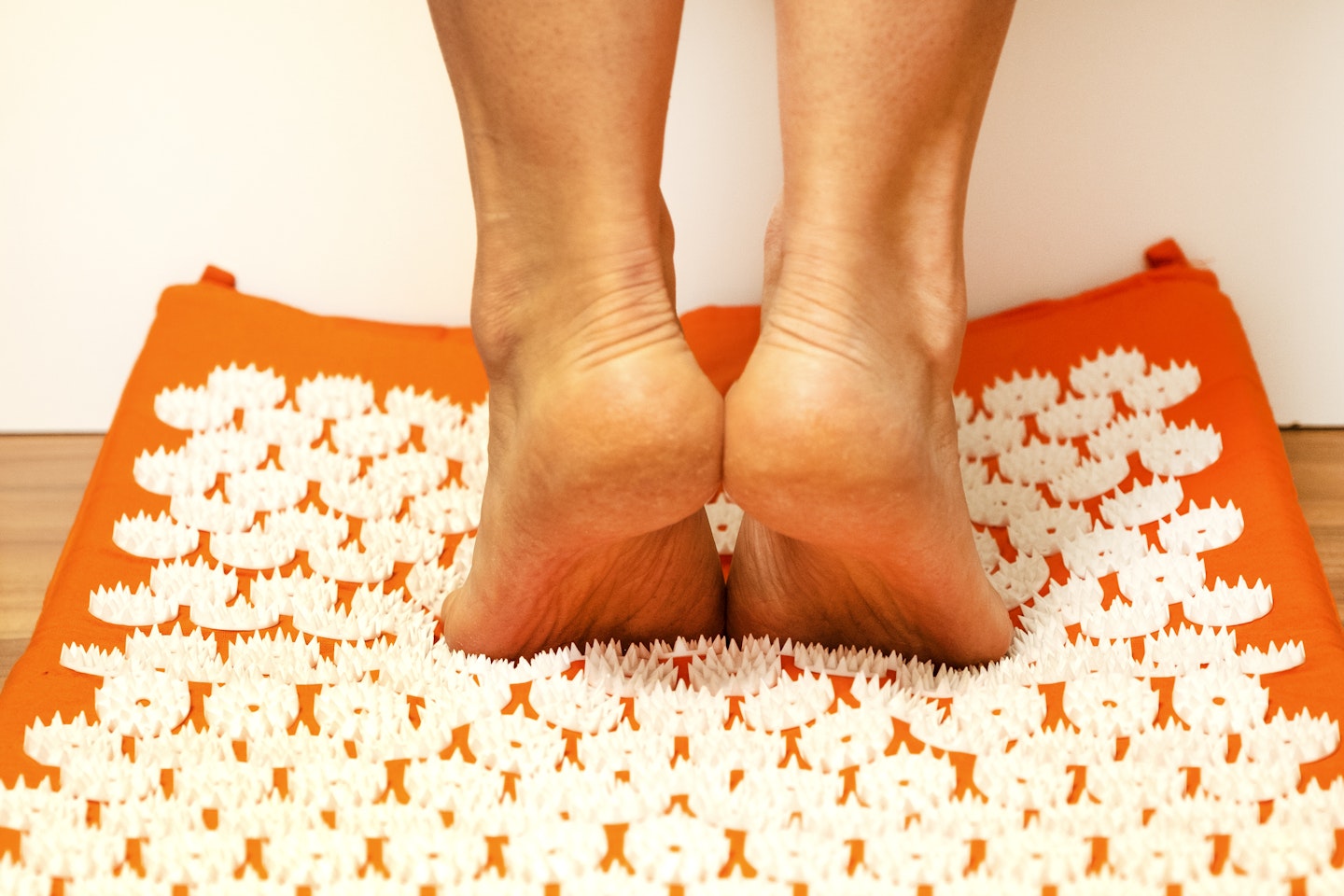 2 of 11
2 of 11Buy an acupressure mat
If you're queasy around needles and don't want to splash out on a salon acupuncture session, a purse friendly acupressure mat is a great alternative to treat aches and pains and get that all important chi (life energy) flowing. Used for thousands of years in China, this type of treatment is said to create equilibrium within the body, balancing out the positive and negative energy which, if unbalanced, can cause physical illness and emotional issues, too. A sure fire mood booster at your finger (or toe) tips.
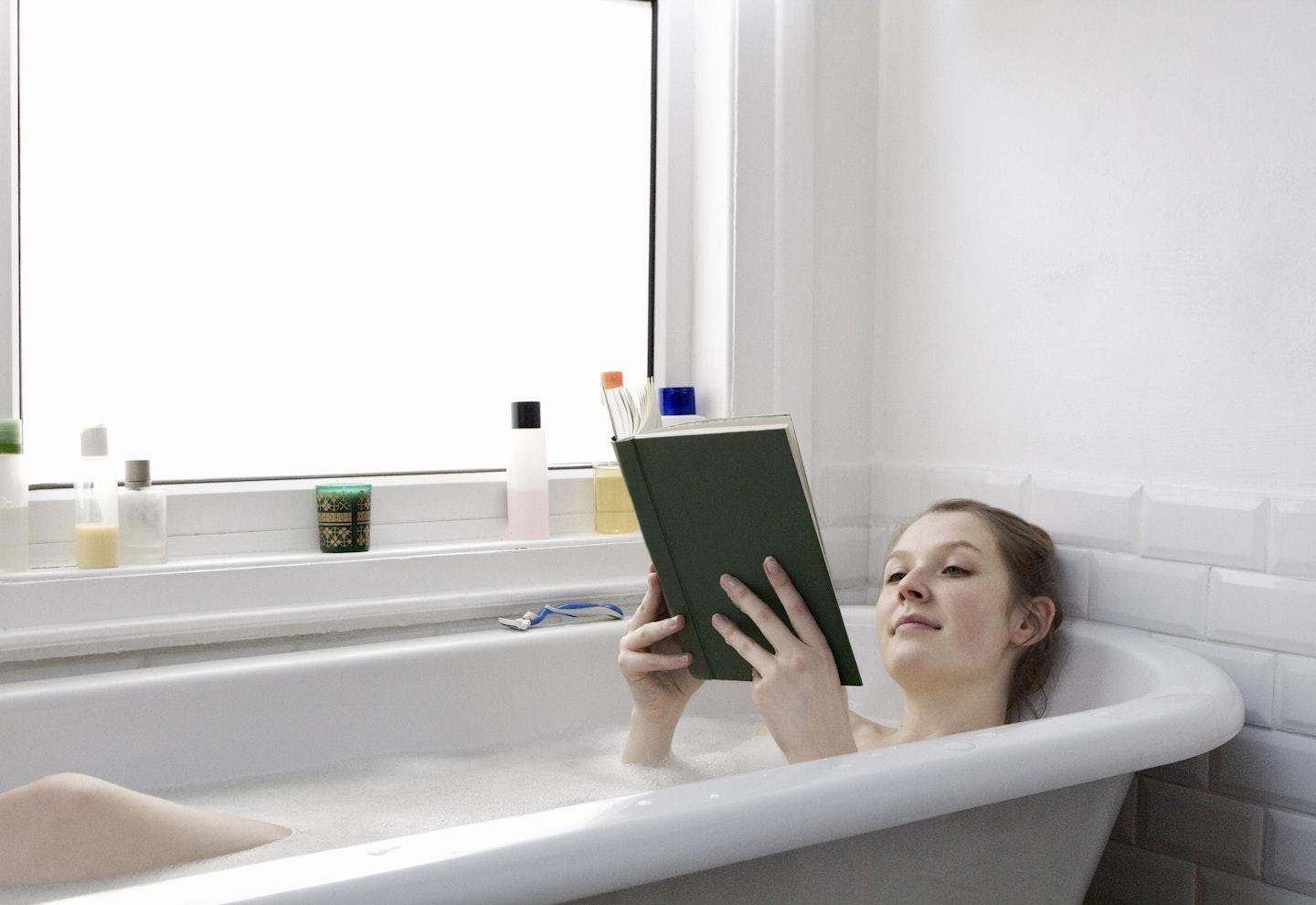 3 of 11
3 of 11Draw a relaxing bath
Your evenings might be busy but swapping out an episode of your fave TV show for a relaxing bath is a great way to get some screen-free time, clear your sinuses and, with a luxurious bath bomb, smell fab, too! [Some studies have even shown](https://www.theguardian.com/society/shortcuts/2018/oct/23/why-a-daily-bath-helps-beat-depression-and-how-to-have-a-good-one here) that a daily bath can help to consistently lift your mood, so switch off the telly and turn those taps on.
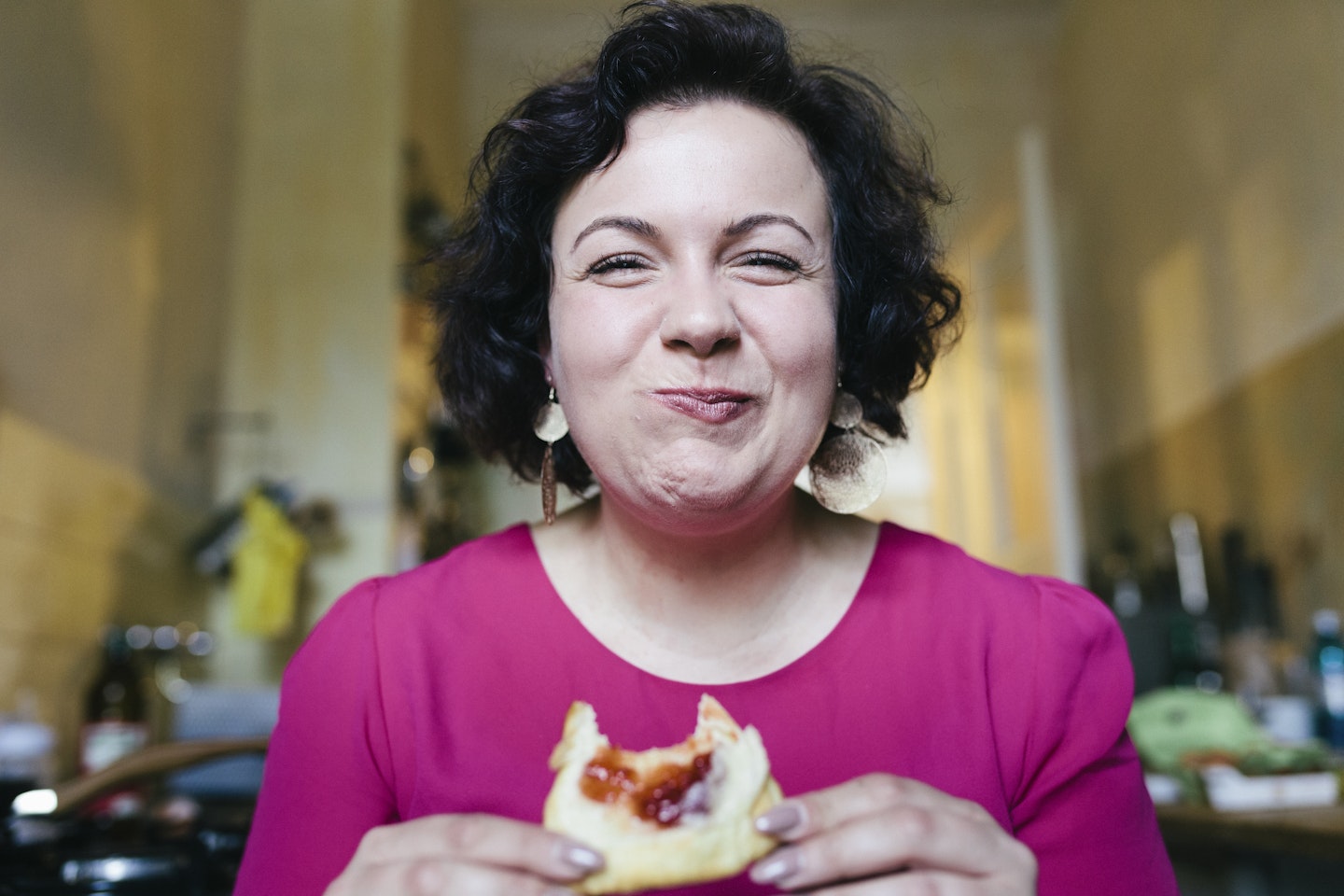 4 of 11
4 of 11Treat yourself to your favourite foods
Food is the ultimate indulgence, and while it's important to maintain a balanced diet for good overall physical and mental health, there's not much that can beat tucking into a comforting bowl of spag bol or a luxury chocolate bar when you're in desperate need of some R&R. These low calorie options mean you can have the best of both worlds.
 5 of 11
5 of 11Splash out on a wellness break
At the pricier-but-worth-it end of the spectrum, a weekend spent at one of the country's many hotel and spa sites will work wonders for your mood. In the UK we are lucky to have loads of spa towns, where the water is naturally hot and enriched with feel good minerals, which means we're spoiled rotten when it comes to choice. Got with a partner, a friend, or – and we can't recommend this enough – on your own, for the ultimate me-time. Check out our picks of the best here.
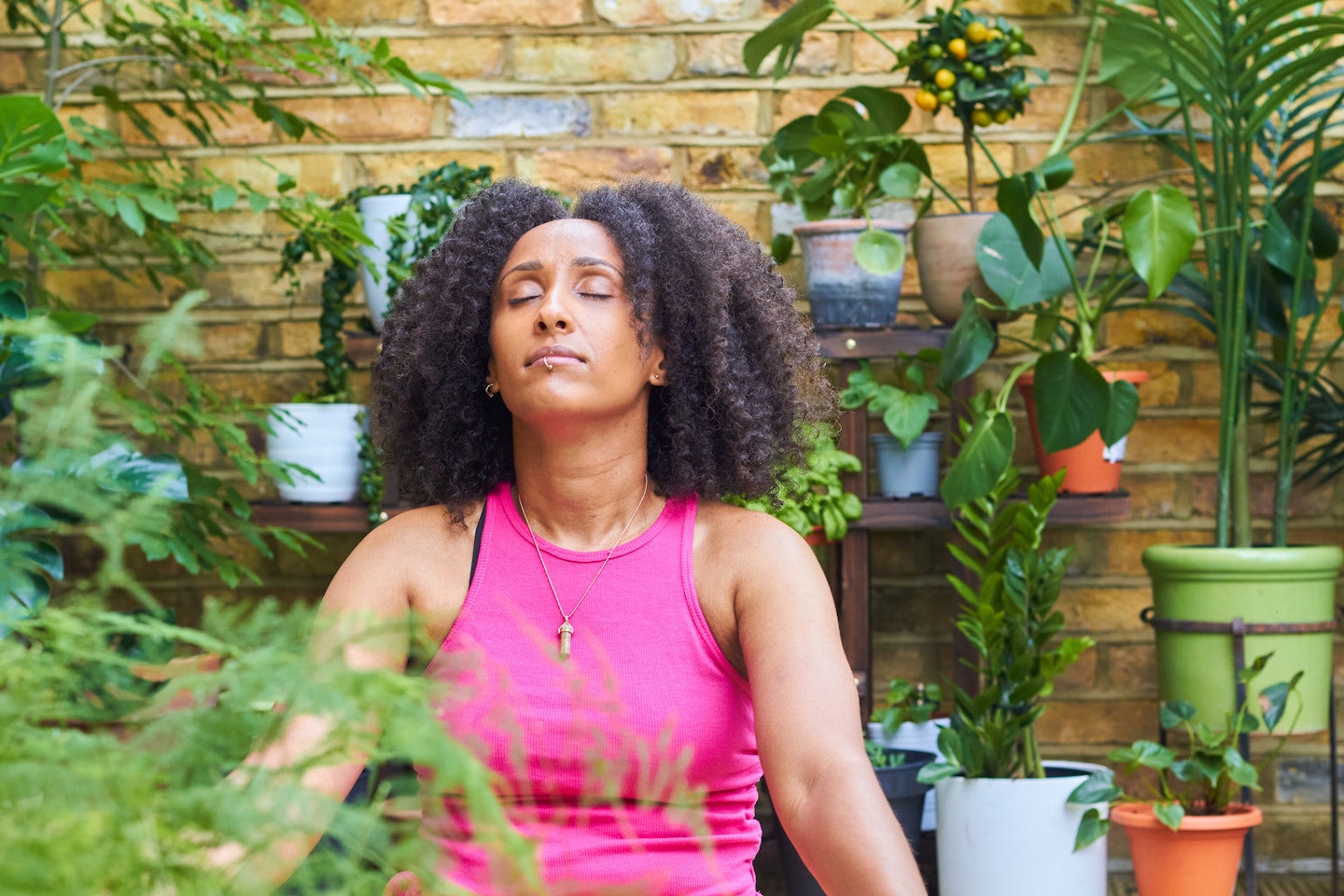 6 of 11
6 of 11Try meditation
Long gone are the days when meditation was strictly the domain of hippy-dippy earth types, adding it into your day can make a real difference to how you cope with challenges thrown your way. It takes practice, but there are plenty of apps and YouTube videos to fill you in on the basics. Once you've got the hang of it, try experimenting with sound baths, yoga nidra and manifestation exercises. Learning how to empty your mind can have lifelong benefits and help with anxiety and depression.
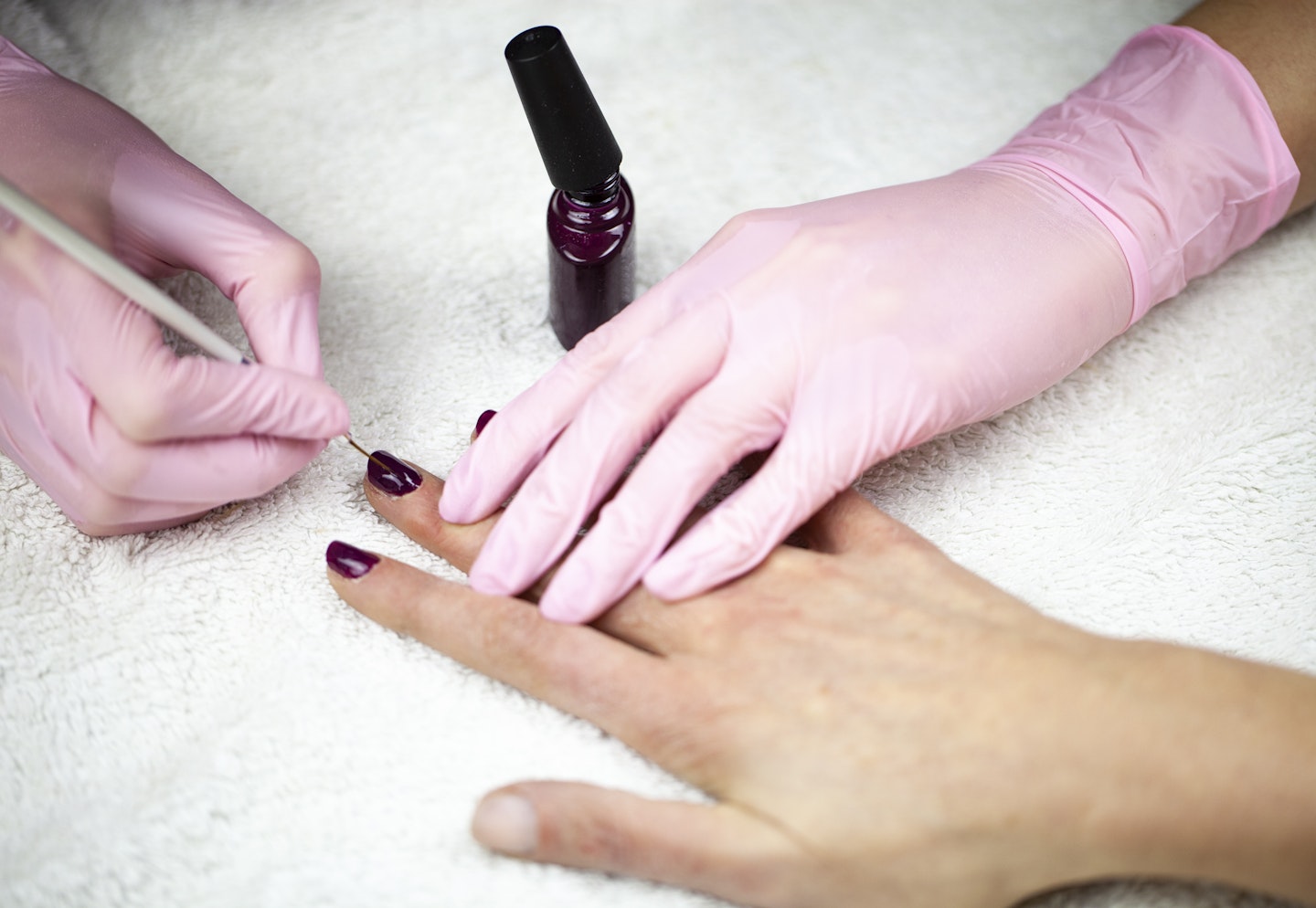 7 of 11
7 of 11Get your hair done/a manicure/massage
When we're feeling low and frazzled, often our grooming is the first thing to go out the window. But looking good can be a fast-track to feeling good, and when we've been running on empty and putting everyone else's needs before our own, even just an hour spent under the care of someone tending to us can elevate our moods. Because, hun, you're worth it.
 8 of 11
8 of 11Take a walk with a friend
Studies have shown that loneliness can have as big an impact on our health as smoking or obesity. According to charity Campaign to End Loneliness, as many as 45% percent of UK adults reported feeling lonely, and this was only exacerbated during the pandemic and successive lockdowns. The good news is that we're free to see our friends whenever we want now, and you don't have to head to a busy pub or restaurant to do it. However cautious you're feeling about socialising now, sometimes the best quality time with a friend can be had taking a leisurely stroll through the park, or having a cuppa at home. The power of friendship is not to be underestimated.
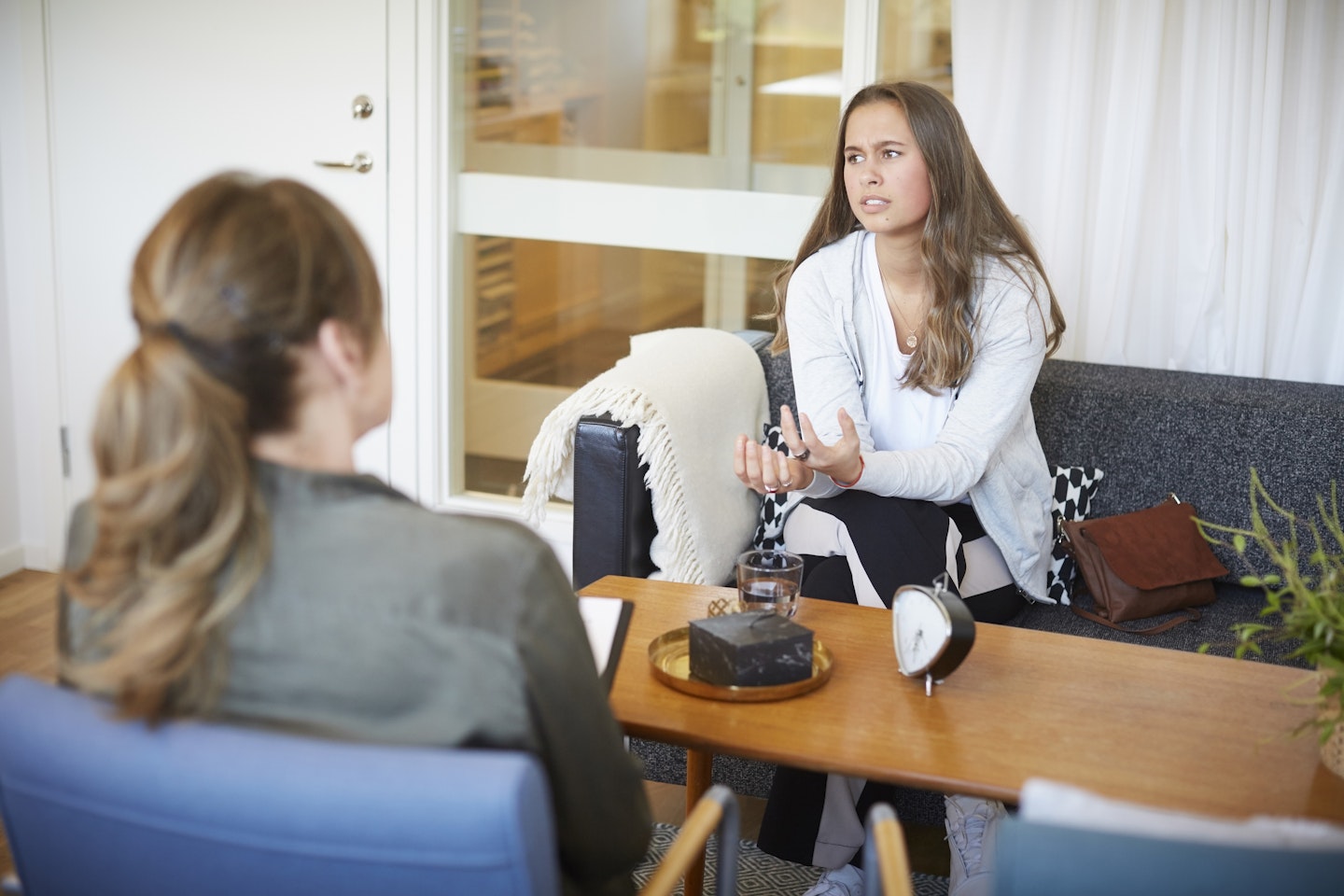 9 of 11
9 of 11See a therapist
If it's available to you, regularly seeing a trained professional to help go through issues or disconnect the link between feelings, thoughts and behaviours can be the ultimate form of self-care. There are loads of talking therapies out there, from traditional counselling to CBT (Cognitive Behavioural Therapy), and it's always worth speaking to your doctor if you think you could benefit from this kind of support. Therapy has shed much of its stigma in recent years as opening up about our mental health has become more mainstream, and long may it continue.
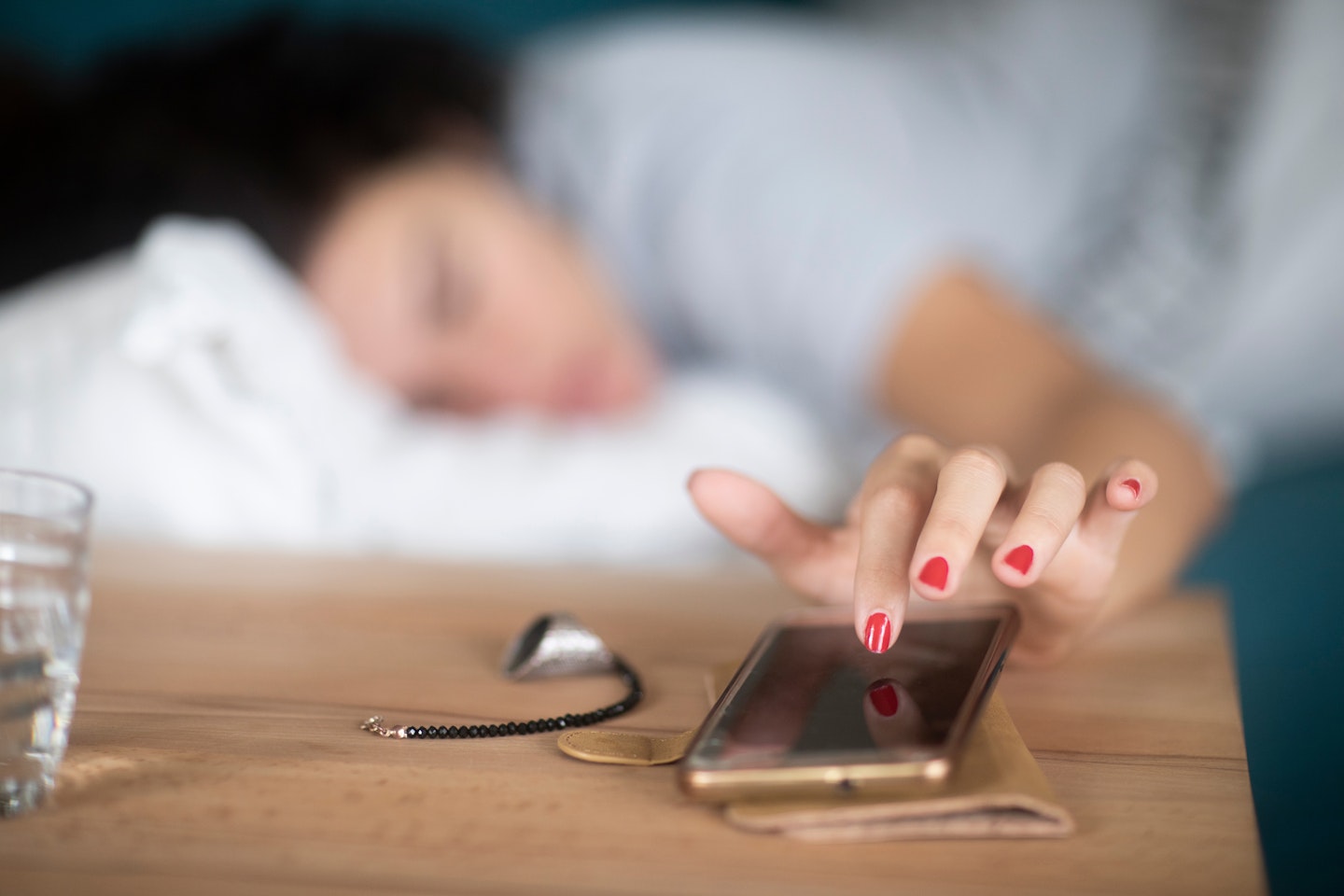 10 of 11
10 of 11Have a phone free weekend
If you're lucky enough to have a weekend off (or a day off in the week), follow many positive social media influencers by trying your hardest to stay away from posting on your favourite social media platforms and enjoy the moment. Still take photos, of course, but focus on being present in the moment instead. Honestly, you'll have SO much more free time and notice the small things more, instead of getting stuck down a comparison hole.
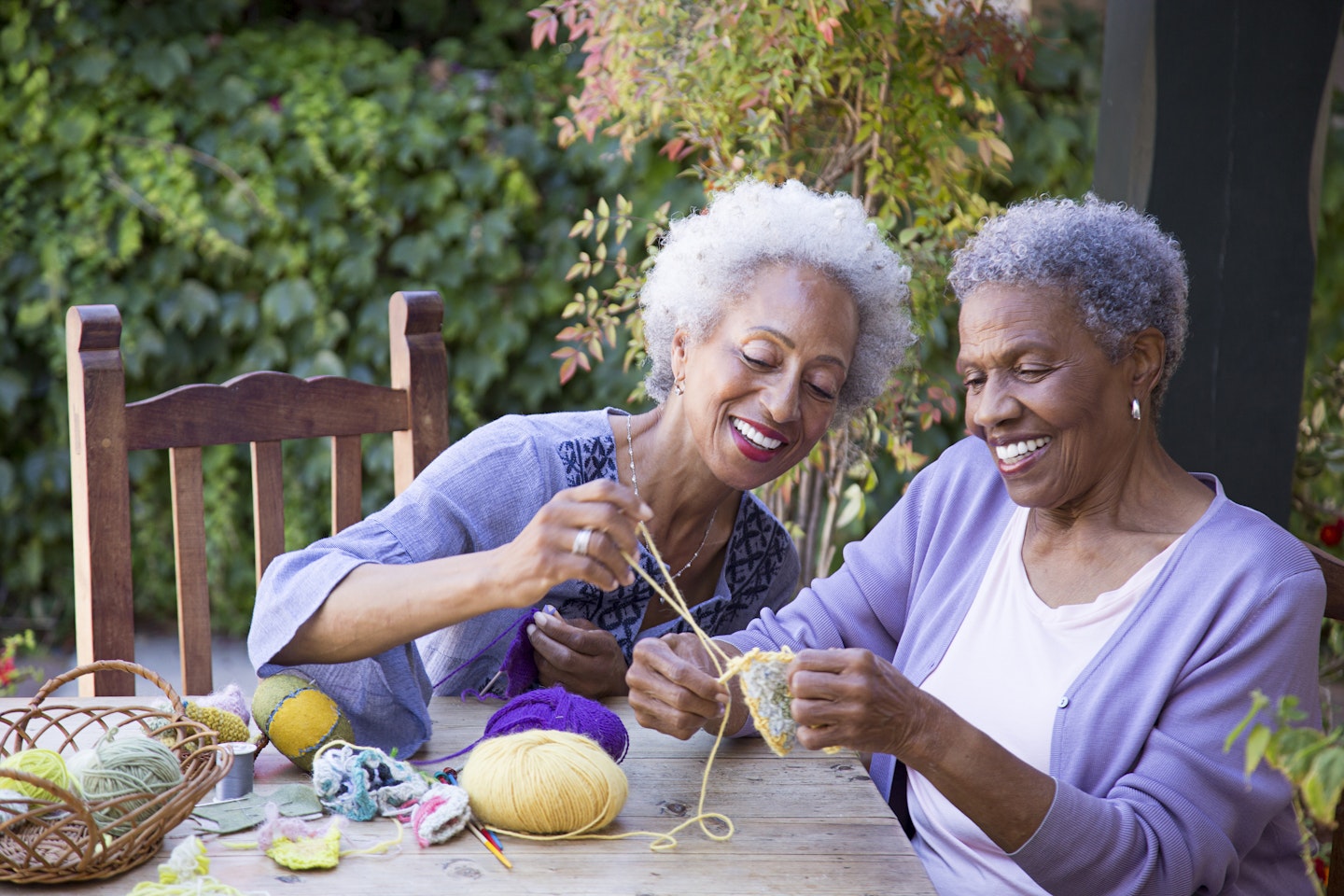 11 of 11
11 of 11Get crafty!
Having a task to focus on does wonders for your mental health, and gives you something else to think about for a while. As well as giving you a boost, you can use your craft time to make something for someone you love or transform something that you haven't seen in a while. Are you a fan of Stacey Solomon? Her hacks are AMAZING and there's so many to choose from, from her Instagram page to her organisation TV show Sort Your Life Out. Get some more inspiration here.
WATCH: Emma Kenny’s mood boosting tips
It goes on to say, "The app features a wide array of tools to promote happiness, wellbeing and to prevent day-to-day problems from holding users back. This includes an everyday ‘mood tracker’, learning modules for a better understanding of what aspects of life are causing anxiety, alongside methods for how to reshape negative thoughts towards more positive ones.
"It tracks and monitors behaviour on an individual level to offer personalised insights, and asides from the brand new recipe content, further new content to have recently landed on the app includes everything from workout and movement videos, to mindfulness and breathing exercises, podcasts, and relatable content from mental health ambassadors and experts designed to support and tackle stigma around mental health."
My Possible Self app recipes
The app has recently introduced a recipe section of delicious meals, snacks and smoothies that promise to boost brain health and strengthen the gut-brain connection.
My Possible Self NHS
As well as downloadable for personal use, the My Possible Self app is even being used by the NHS, with GP’s referring patients to the app as an alternative, stop gap or follow up to more traditional talking therapy. As it's well known that the waiting list is notoriously long due to the sector being chronically underfunded.
